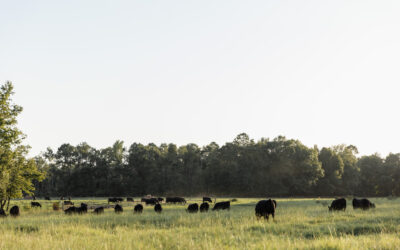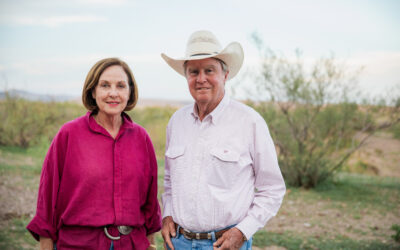
CAB names first-ever Sustainability Award honoree
Wilson Cattle Company & Beef Northwest cast a vision for the future of beef production
by Nicole Lane Erceg
Photos by Nicole Lane Erceg and Kylee Kohls
September 24, 2020
“No, I don’t have a background in agriculture. I just started here as an intern.”
It’s a story told by many employed at the Pacific Northwest cattle feeding business. From the sixth-generation cattleman analyzing pasture data, to the yard manager at Quincy, Wash., to the pen rider monitoring cattle health in the Nyssa feedyard near the border of Idaho, people are the hub of this wheel.
Together they care for more than 100,000 head in four locations, the other two at Hermiston and Boardman, Ore.
It sounds big, but feels small. The shared Beef Northwest and Wilson Cattle Company headquarters look like most other ranch offices. Dogs greet visitors at the door and the “parking lot” is a row of trucks positioned outside the working pens.
Cattle, of course, are a critical part of the equation. It’s their measurement of performance that determines success — rooted in the philosophy that one plus one should always equal more than two.
The two entities are halves of the same whole. One feeds, the other breeds and stocks a steady supply, ready to fill the pens as they empty. Wilson Cattle Company harvests the grass in Baker Valley while Beef Northwest, started by the fifth generation of Wilsons, finishes the cattle. It’s a symbiotic relationship, both dependent on each other — challenging even for those who serve inside to determine where one ends and the other begins.
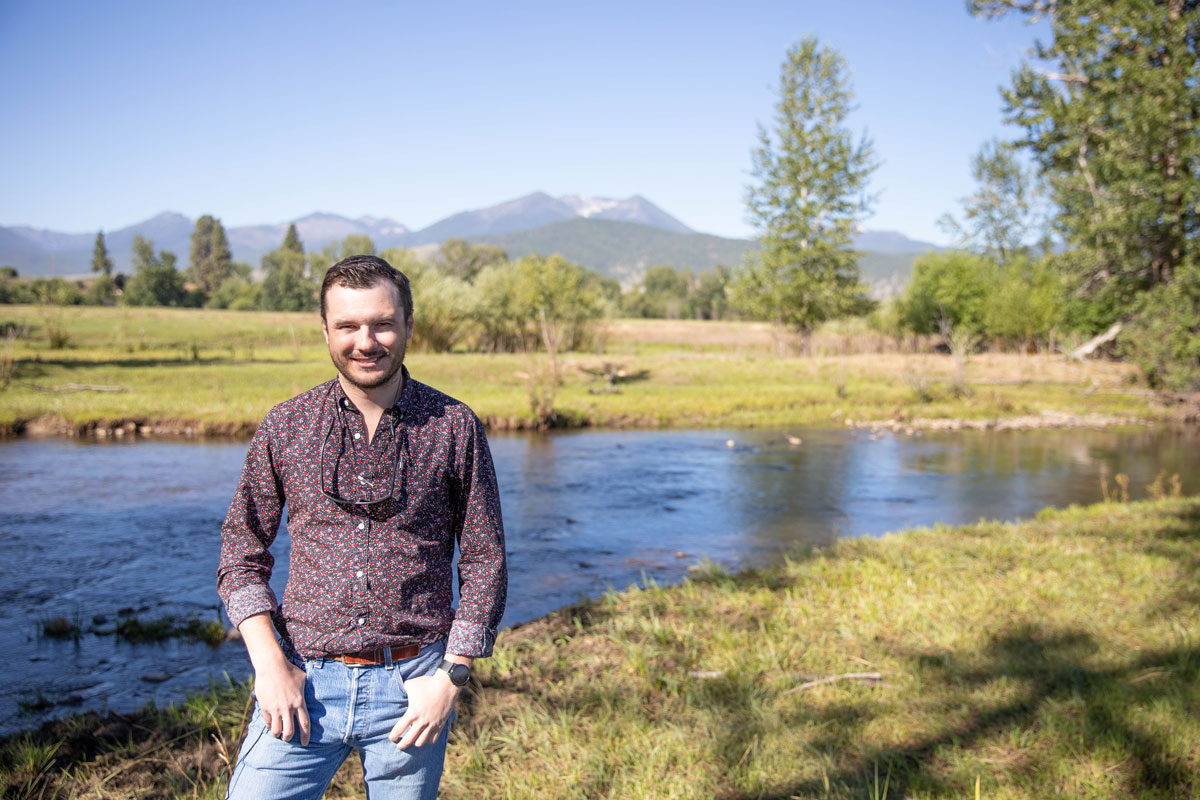
Wilson Cattle Company
The ranch system is based on intensive rotational grazing combined with making the land the best habitat possible for more than the 2,000 Angus-based commercial cows and 12,000 stocker cattle that call it home.
“If it’s good for the little bugs in the soil, or the migratory birds or larger mammals like elk or deer, even rodents, it’s going to be good for the cattle,” Zach Wilson, sixth generation on the ranch, says. “If you treat it more as a holistic system, rather than simply inputs for the cattle, then you’re going to get better performance out of your cattle.”
It’s not, as Wilson would put it, “hippy woo-woo.” He has the data to prove it works, boiling down the economic input into gains and head-days in pasture.
“Our job is to work with Mother Nature,” he says. “She knows best. We try to figure out the best incentives for what is going to help her be her most productive self.”
It’s a high road that takes discipline.
“The ranch is like a muscle,” Wilson explains. “We’re working it out to make it stronger, just like we’d go to the gym and do pushups. It’s a living organism and it should be treated as such.”
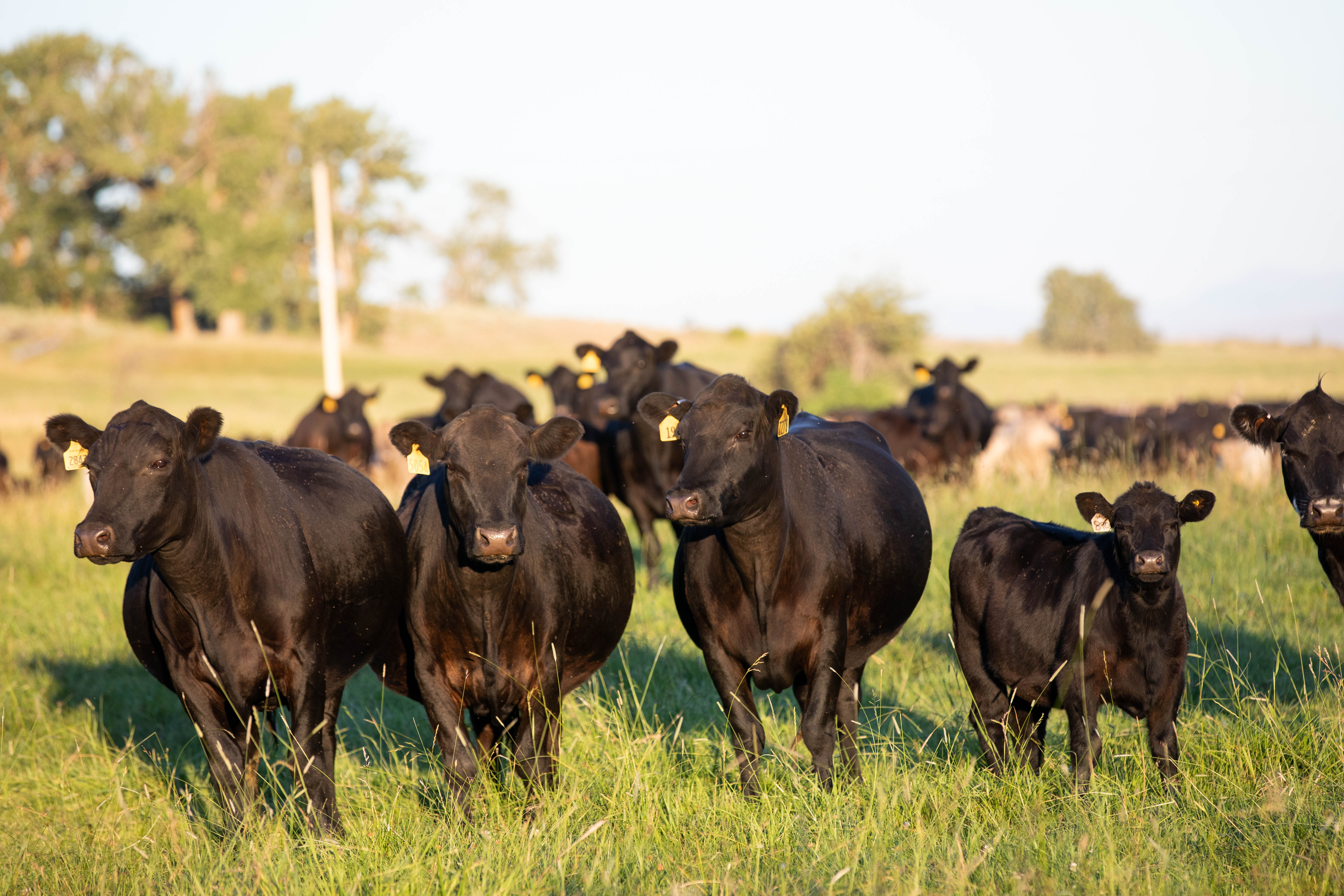
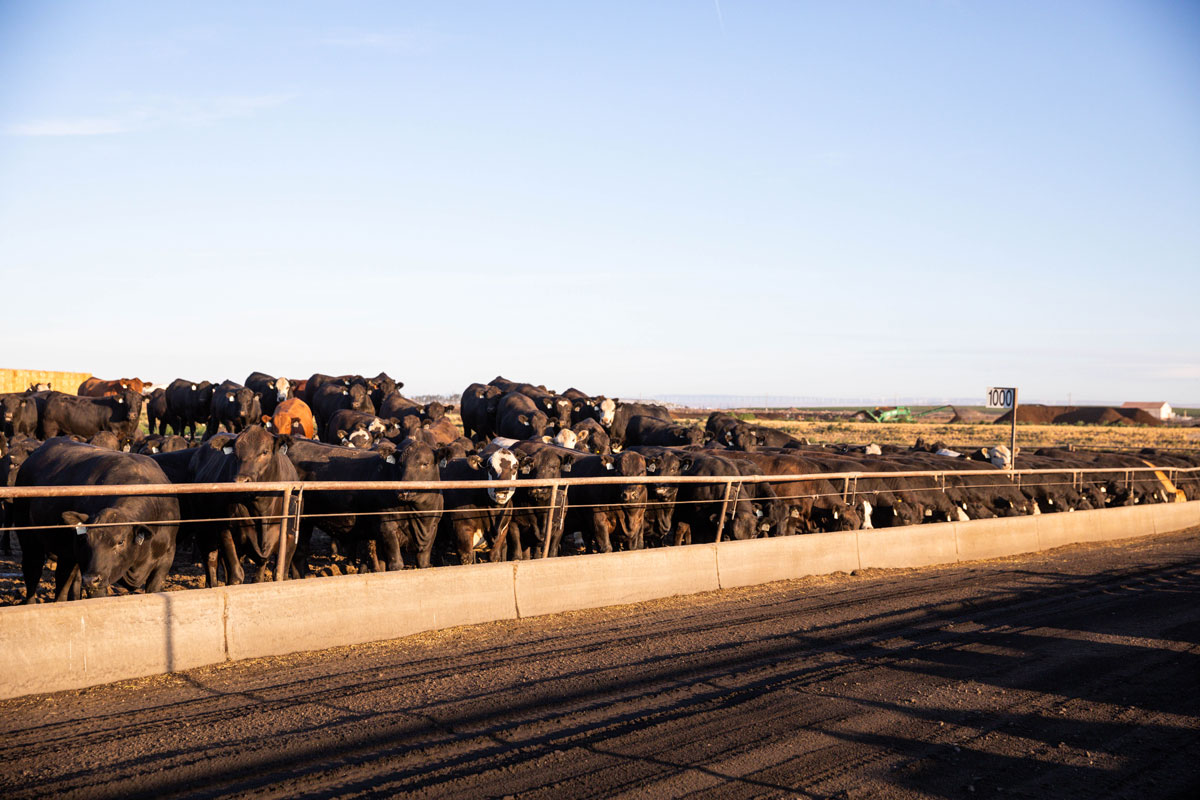
The Feedyard
Eastern Oregon isn’t known for cattle feeding. Far from the Corn Belt and High Plains, the model requires progressive thinkers who harness a resource the landscape does offer: potatoes.
The feeding facility sits just down the freeway from french-fry factories. Tater tots, fries and jojos that don’t make spec become the basis for a high-quality mixed ration.
“If we weren’t here to utilize the potatoes, they would end up in a landfill,” Szasz explains. “That’s where they were going, prior to us being in the area.”
It’s in their DNA to look for opportunities to innovate around every corner. At the same time, the Beef Northwest team fiercely protects the best traditions of the past.
It’s cowboys and cutting-edge technology, a commitment to excellence in every chore. Quality cattle-feeding requires focus beyond the feed bunk, and they hold themselves accountable through Progressive Beef, a branded and audit-verified production system.
“I believe the quality of the beef that comes out of Beef Northwest is directly related to the quality of the people,” says Wes Killion, Chief Operating Officer. “It’s a window into the company that goes with every aspect, be it environmental stewardship, animal health, animal performance or consumer eating experience.”
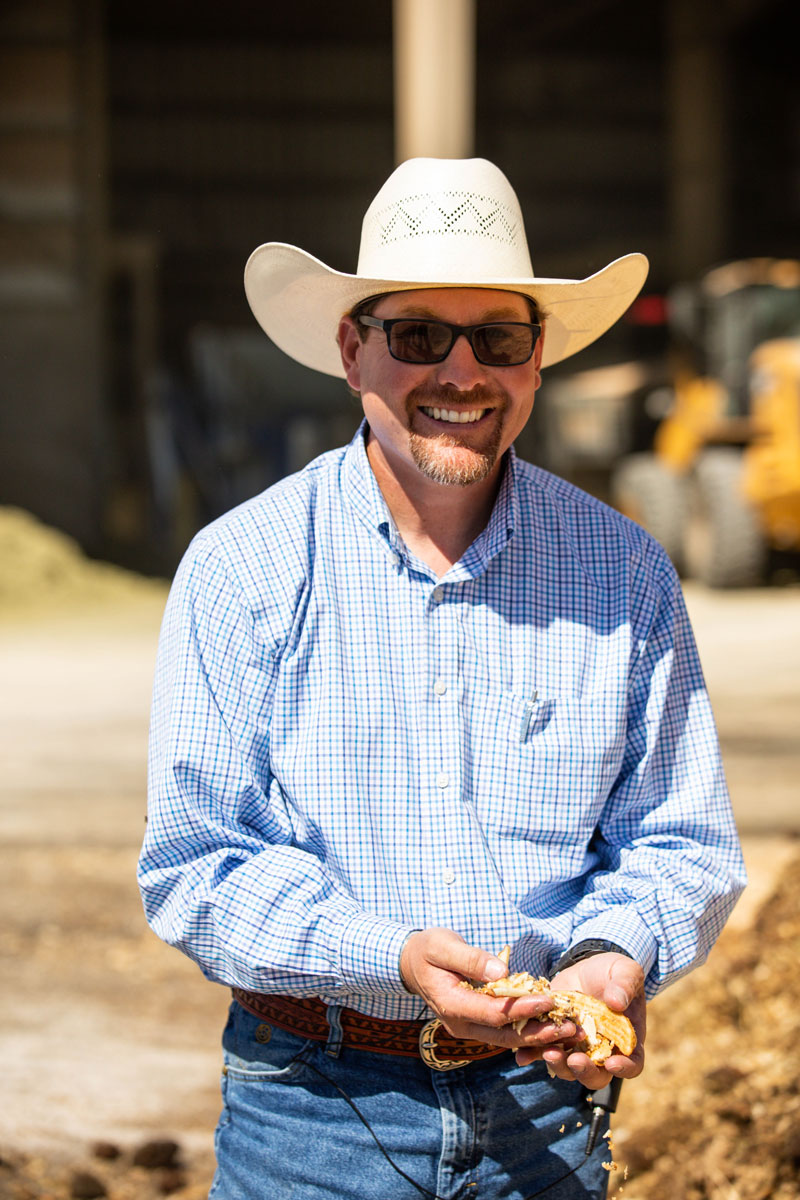
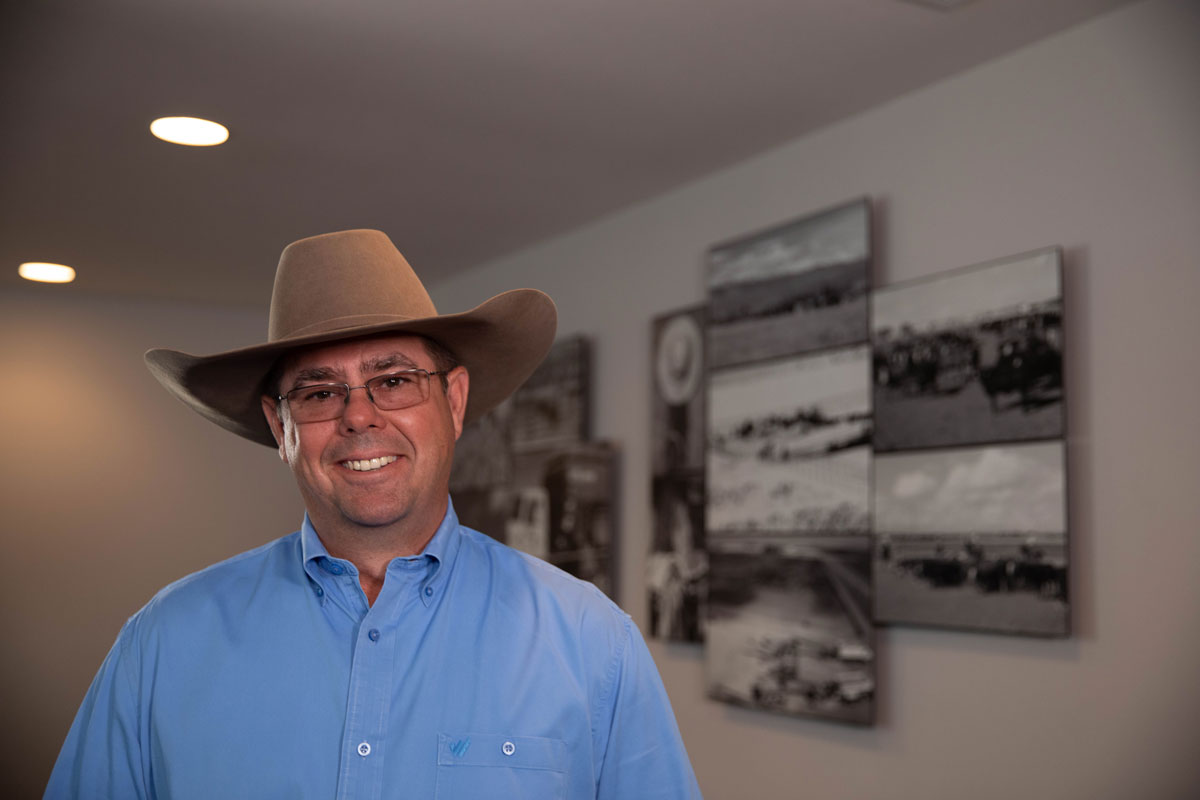
Sustaining success
Sustainability was a mindset at Beef Northwest and Wilson Cattle Company long before the term became a buzzword, earning the sister organizations the first-ever Certified Angus Beef ® Sustainability Commitment to Excellence Award.
“The more we can take care of the environment, the better opportunity there is for a better outcome for the cattle, be it health or performance as well as quality,” Killion says. “All of those play a vital role. We want to be leaders and not followers on the environmental aspect of feeding.”
The ideal animal coming into the yard begins with quality genetics. Szasz is looking for an Angus-type, 750-pound steer that won’t have any health challenges.
“It is something we truly value when we go out and procure cattle,” says Killion. “We’re always looking at cattle that would qualify for Certified Angus Beef premiums.”
Because sustainability includes a black bottom line.
“I think there’s a disconnect when people talk about sustainability, that it’s either profit or environmental improvement,” Wilson says. “It’s the exact opposite. To me it means working with the weather, the land, the people and the cattle. Letting nature and the environment tell us what to do because if you do that, then the bottom line will show you’re doing the right thing.”
Sustainability is a nebulous term, one so all-encompassing as to challenge grasp. In this corner of the world, though, it’s a clear, shared vision that the business is much bigger than any one individual. Each person’s commitment to consistent betterment in their area of ecology, cattle health, genetics, technology or people creates collective value.
Sustainability isn’t just about the end product, the ranch or the feedyard.
It’s everyone in between.
CAB recognized its 2020 honorees at the brand’s virtual annual conference on September 23 and 24.
You may also like
Healthier Soils and Stronger Herds
Effective land stewardship requires an understanding of how each decision affects forage growth, cattle performance and long-term stocking rates. When land is the foundation of the business, producers are more likely to invest time and resources into managing it intentionally.
Means Ranch Company Earns Certified Angus Beef Sustainability Award
Four generations of the Means family built a legacy through sustainable grazing, water conservation and careful selection of Angus genetics for their south Texas environment. Their stewardship earned the 2025 CAB Sustainability Award.
An Unforgiving Land
What makes a ranch sustainable? To Jon, it’s simple: the same family, ranching on the same land, for the last 140 years. The Means family never could have done that without sustainability. Responsible usage of water, caring for the land and its wildlife, and destocking their herd while the land recovers from drought.

